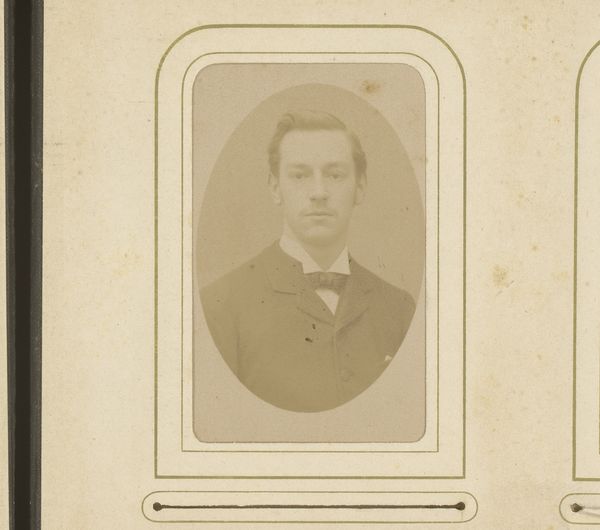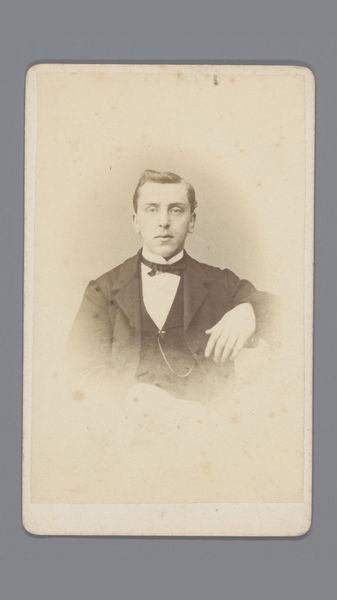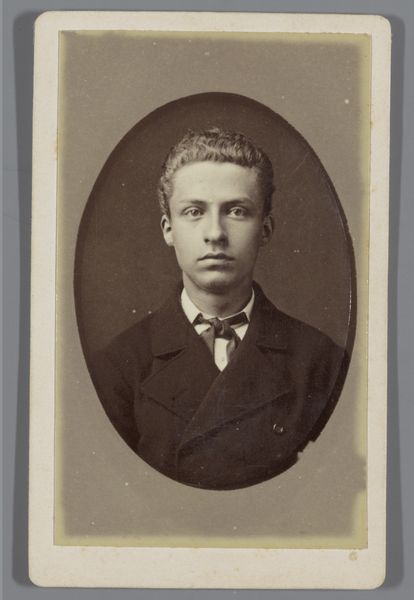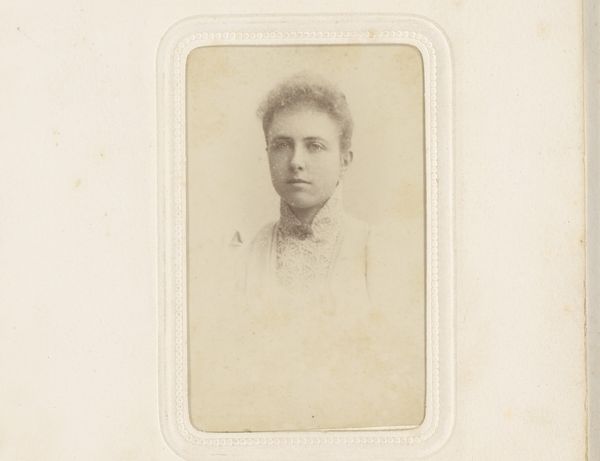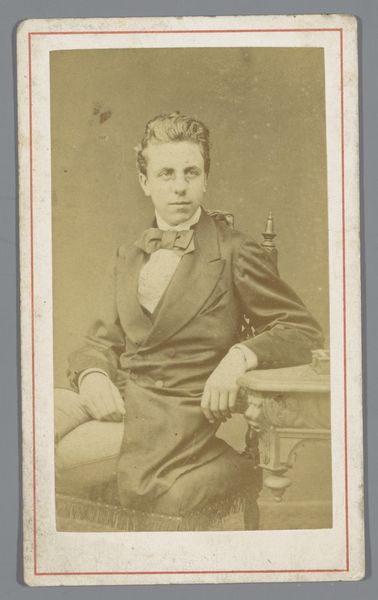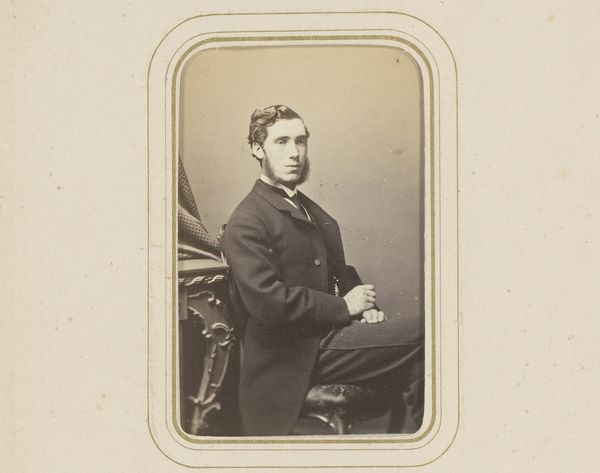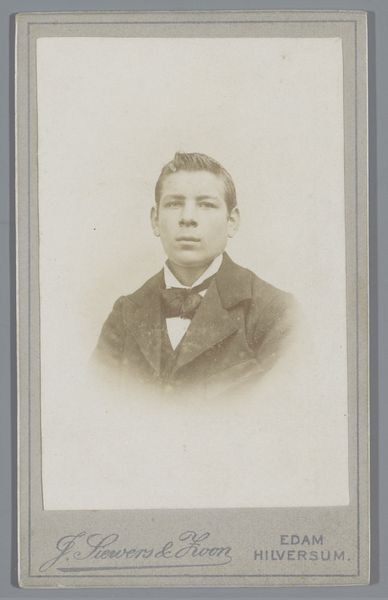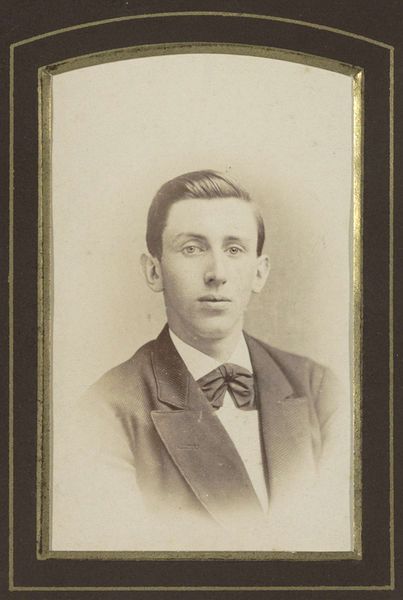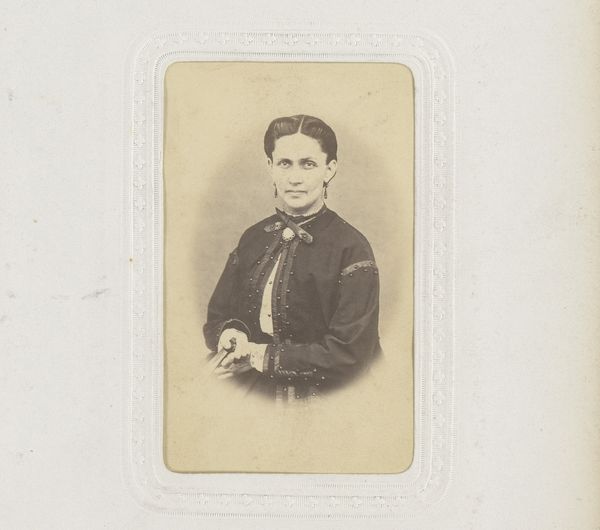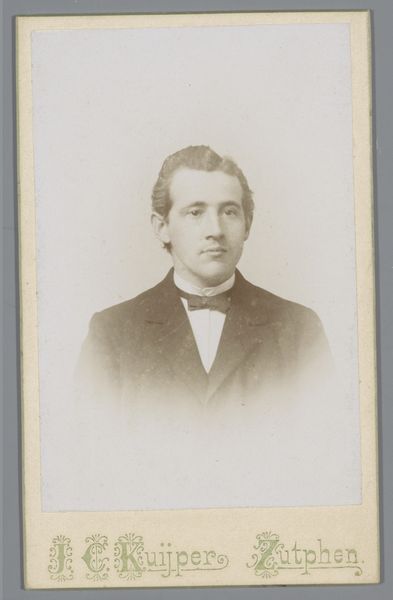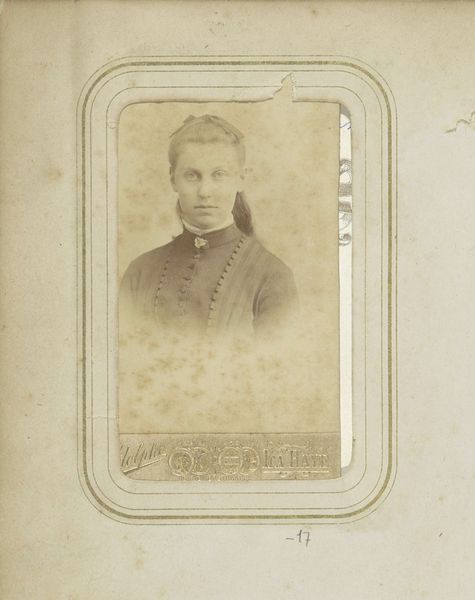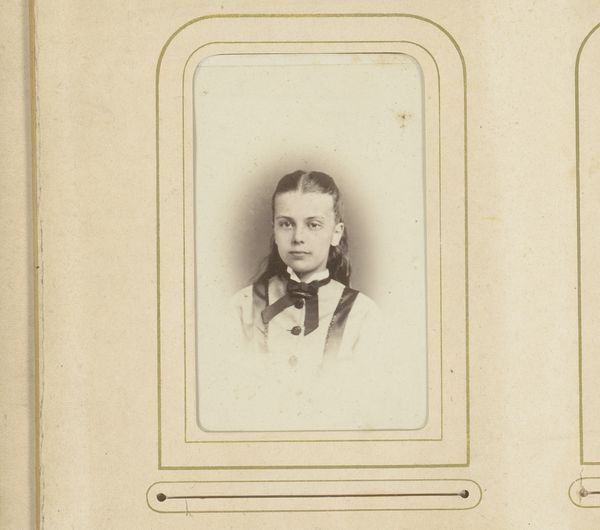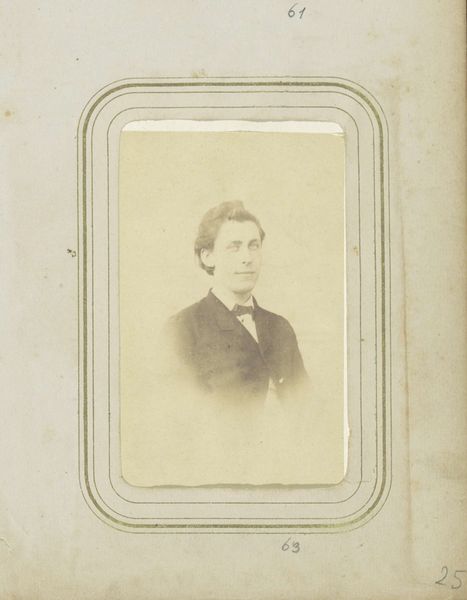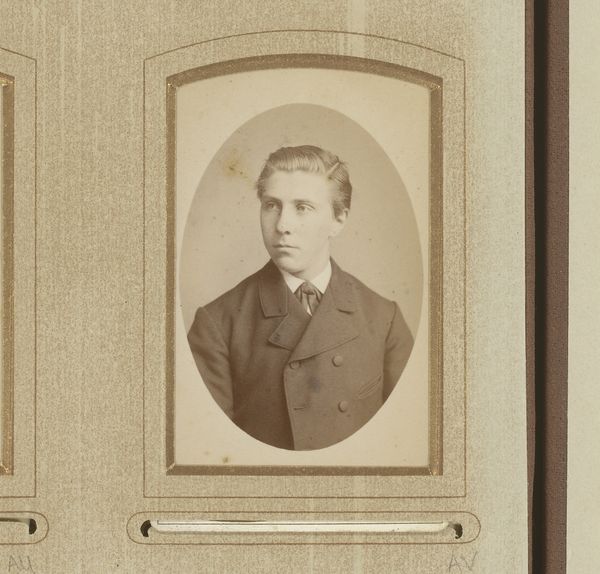
photography
#
portrait
#
photography
#
19th century
#
history-painting
#
realism
Dimensions: height 87 mm, width 53 mm
Copyright: Rijks Museum: Open Domain
This photographic portrait of a man in military uniform was likely made with the wet collodion process, which involves coating a glass plate with chemicals, exposing it in a camera, and developing it immediately. The resulting image is a direct positive, meaning it's a unique, one-off object. This process, which boomed in popularity during the mid-19th century, democratized portraiture. Unlike painted portraits reserved for the wealthy elite, photographs became accessible to a broader segment of society. The smooth, almost ethereal quality of the photograph is directly linked to the collodion emulsion and the way light interacts with it. Its sepia tone, created during the developing process, gives the image a timeless quality. The rise of photography studios and skilled technicians like Baldi & Würthle reflects the burgeoning industrialization of art, where creative practices were increasingly intertwined with commerce, labor, and the growing culture of consumption. It is a reminder that every image, even one capturing a single individual, carries within it traces of broader social and economic forces.
Comments
No comments
Be the first to comment and join the conversation on the ultimate creative platform.
